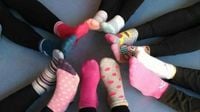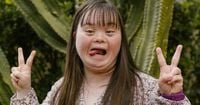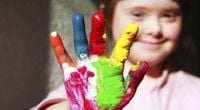Every year, March 21st marks an important occasion: World Down Syndrome Day. This day stands as a testament to the resilience and uniqueness of individuals with Down syndrome, an inevitable result of an extra chromosome where people typically have 46. The celebration has grown to encompass a fun yet meaningful tradition—wearing mismatched socks. This initiative not only serves as a playful visual cue but also symbolizes that every person is different, thereby promoting inclusivity and awareness.
World Down Syndrome Day has been observed since March 21, 2012, following official recognition by the United Nations Assembly on December 19, 2011. The decision to select this particular date is rooted in the genetic anomaly known as Trisomy 21, where an individual has a third copy of the 21st chromosome. Hence, the 21st day of the 3rd month is aptly chosen to reflect this condition. Historically, Down syndrome has been misunderstood and stigmatized, but through days like this, there is a growing movement to foster acceptance and understanding.
Globally, it is estimated that 1 in every 1,100 newborns is diagnosed with Down syndrome. This startling statistic underscores the importance of education and awareness initiatives. With an aim to not only recognize but also celebrate these unique individuals, the campaign promotes patient autonomy and individual rights. Many stories emerge from communities across the world, demonstrating how individuals with Down syndrome are contributing meaningfully to society, despite facing challenges like discrimination and physical health issues, including potential heart disorders.
A heartwarming feature of this celebration is the popular initiative sparked by a young girl named Chloe Lennon from the UK. In 2018, she shared a video urging people to participate by wearing colorful, mismatched socks on World Down Syndrome Day, coining the movement "Rock Your Socks." Since then, her call has garnered international attention and support from various organizations, including the WHO and the UN. The movement's charm lies in its simplicity yet impactful symbolism, as vibrant socks serve as a reminder of the beauty in diversity.
Alongside wearing mismatched socks, additional ways to commemorate this day include attending workshops or supporting local organizations that advocate for the rights of persons with disabilities. In places like Querétaro, Mexico, various activities promote awareness, including interviews and testimonials from families affected by Down syndrome, showcasing love, determination, and the ongoing journey toward equality.
The theme for 2024 has been announced as "End stereotypes,” aiming to eradicate limiting perceptions surrounding individuals with Down syndrome. This year’s focus is crucial, reflecting the need to challenge the narrative that often confines individuals to unjust expectations or discrimination. Reminders of their capability can pave the way for greater opportunities, autonomy, and inclusion in society.
As people together wear mismatched socks, it conveys a powerful message: uniqueness deserves celebration. By joining in on the festivities and employing platforms to inform and educate others about Down syndrome, everyone can contribute to a more inclusive society. On this day, whether participating in organized events or observing from afar, it’s a meaningful reminder that everyone, irrespective of their genetic differences, deserves respect, love, and opportunity.
The commemoration of World Down Syndrome Day fundamentally seeks to change hearts and minds. Through joy, laughter, and color, we can not only honor individuals with Down syndrome but also advocate for their rights, ensuring that society recognizes their worth and potential. The initiatives today, underscored by the influential call of Chloe Lennon, highlight that visibility, connection, and shared experiences are vital in ensuring individuals with disabilities are seen and heard. This ongoing call for equity fuels a collective spirit that celebrates humanity's diversity.







